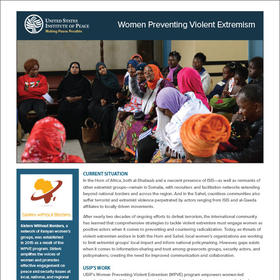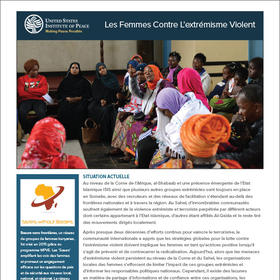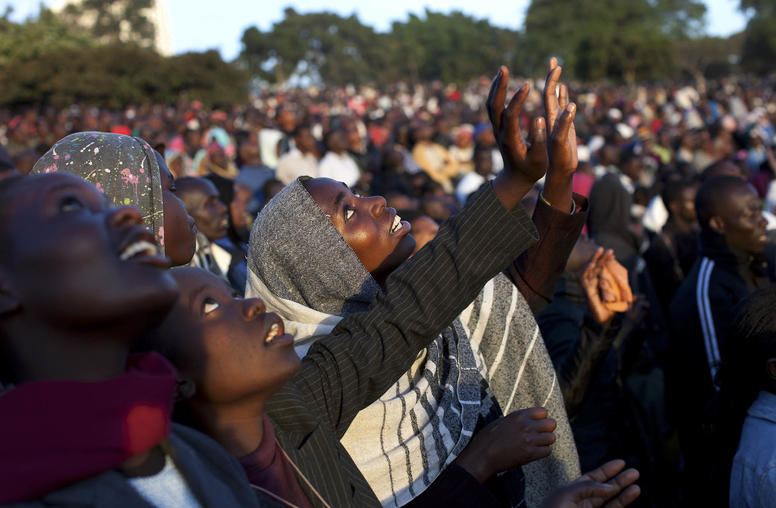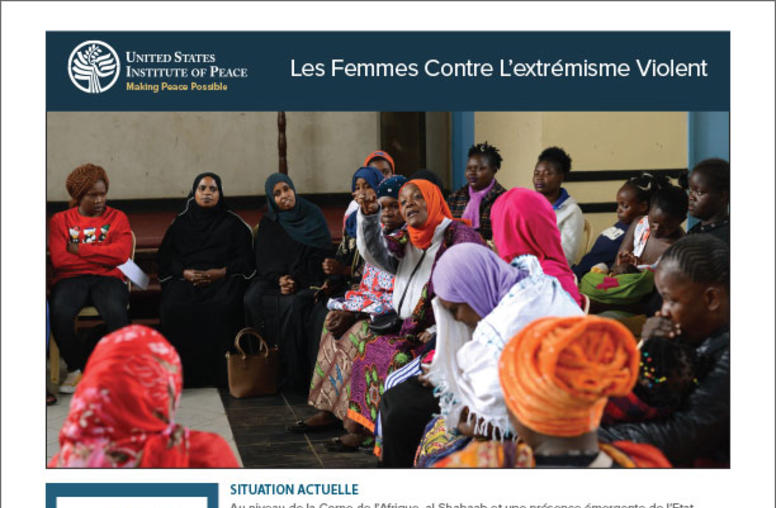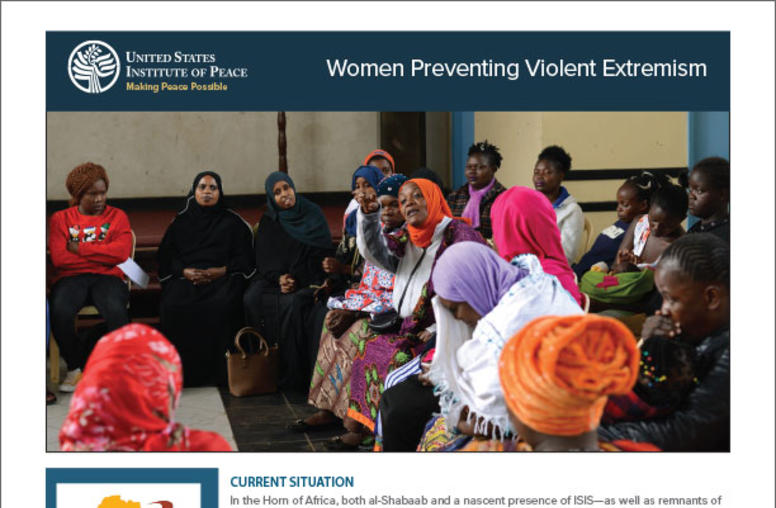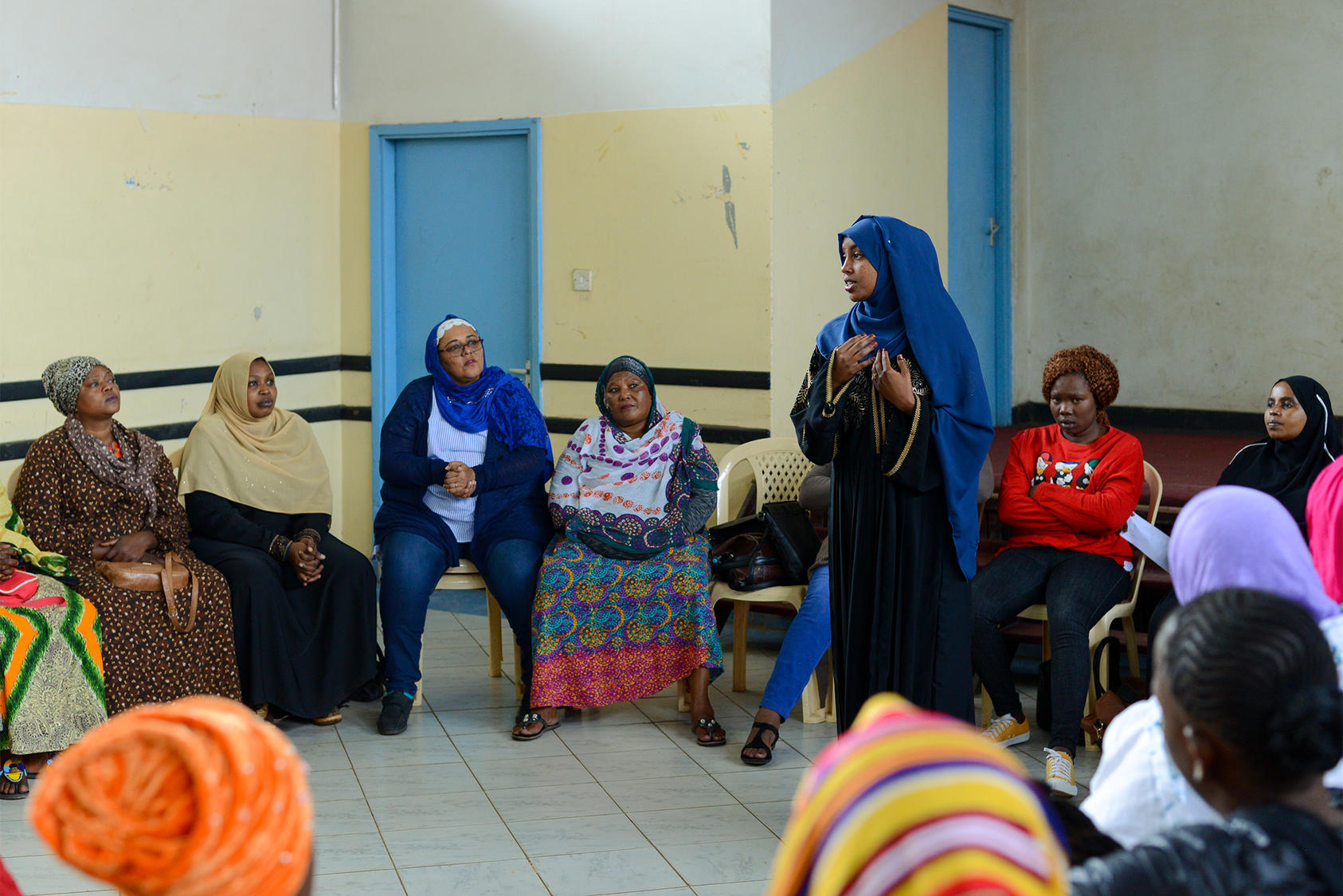
After nearly two decades of ongoing efforts to defeat terrorism, the international community has learned that it must engage women as positive actors in their comprehensive strategies to tackle drivers of violent extremism and counter radicalization. Today, as threats of violent extremism endure in the Horn and continue to grow in the Sahel, local women’s organizations are working to limit extremist groups’ local impact and inform national policymaking. However, information-sharing gaps exist among community members, security actors, and policymakers, calling for trust-building initiatives in order to improve communication and collaboration.
In the Horn of Africa, both al-Shabaab and a nascent presence of ISIS—as well as remnants of other extremist groups—remain in Somalia, with recruiters and facilitation networks extending beyond national borders and across the region.
In the Sahel, countless communities also suffer terrorist and extremist violence perpetrated by actors ranging from ISIS and al-Qaeda affiliates to locally driven movements. A conflict that took root in Mali was amplified as a result of turmoil in Libya—and has now spilled outside Mali’s borders into neighbors Niger and Burkina Faso, creating a regional security crisis.
USIP’s WPVE program empowers people and institutions to build peace by deepening understanding and increasing the capacity and skills of women working to prevent and counter violent extremism. These women then inform and improve policy and practice to transform fragile contexts into more resilient ones. Supporting women’s local leadership can lead to the inclusion of women and girls as change agents in decision-making processes and position them to advocate for their rights, safety, and inclusion more broadly.
Approach and Principles
The WPVE methodology grew from the analysis and evaluation of a previous USIP program and incorporates the principles of USIP’s Gender Analysis Framework and Theory (GIFT) to build trust at a local level through gender-inclusive processes. Now, in partnership with the Office of Global Women’s Issues at the U.S. Department of State to advance the implementation of the U.S. Strategy to Support Women and Girls at Risk from Violent Extremism and Conflict, USIP is building the WPVE program across the Horn of Africa and transferring and adapting it in the Sahel.
USIP’s WPVE program accounts for the diverse range of roles—as enablers, beneficiaries, preventers, peacekeepers, supporters, victims, and others—that women play in the prevention of and response to violent extremism. The approach is based on the following principles:
Building Capacity at the Local Level
Through workshops, dialogues, and trainings, the WPVE program is uniquely designed to ensure that capacity-building efforts build trust at the local level through inclusive processes while elevating women as change agents that contribute to more sustainable approaches for mitigating violent extremism. Via connections made within their communities, women are able to create a safe space for discussing shared issues and explore areas of collaboration and approaches to their programming.
Fostering Trust with Security Actors
Dialogues increase understanding, trust, collaboration, and empathy between women and local and national level security actors. A series of facilitated dialogues between women, community members, and security actors allows for new avenues of coordination that help identify shared threats and strengthen resilience.
Connecting Women with Policymakers
WPVE connects women with local and national level policymakers to advise and influence policies that prevent and counter violent extremism and supports the sharing of good practices through women-led network-building. Women and women’s organizations can use these networks as strategic relays between communities and national-level decision-makers for preventive efforts.
WPVE’s Partner in Kenya: Sisters Without Borders
In 2015, a group of Kenyan women civil society leaders established the Sisters Without Borders network as a result of the convening and capacity-building of the WPVE pilot program. Sisters Without Borders amplifies the voices of women and promotes effective engagement on peace and security issues at the local, national, and regional levels. Sisters Without Borders is now a critical partner of the Kenyan government and has helped curb terrorist attacks, advised policymakers, and reviewed key policy documents such as national and local counterterrorism strategies.
The WPVE program expands upon the Sisters Without Borders platform to enable local networks of women to work effectively in their communities by providing them and the organizations they represent with capacity building (e.g. tools, connections, training, and curricula), as well as enabling them to define a local agenda on best practices and areas in need of further study and effort. In the Horn and the Sahel, the project leverages the network’s experience and ability to affect change through participation in policy-level discussions, expanding the initiative as a model for two of the continent’s regions that are most afflicted by violent extremism.
Conceptualized in 2012 as a pilot project, the WPVE program initially organized a series of trainings and dialogues in Kenya and Nigeria that brought together women civil society leaders and members of the security sector in order to elevate women’s perspectives in preventing violent extremism. More information on previous iterations (2012-2017) of this project can be found here.
Featured Event
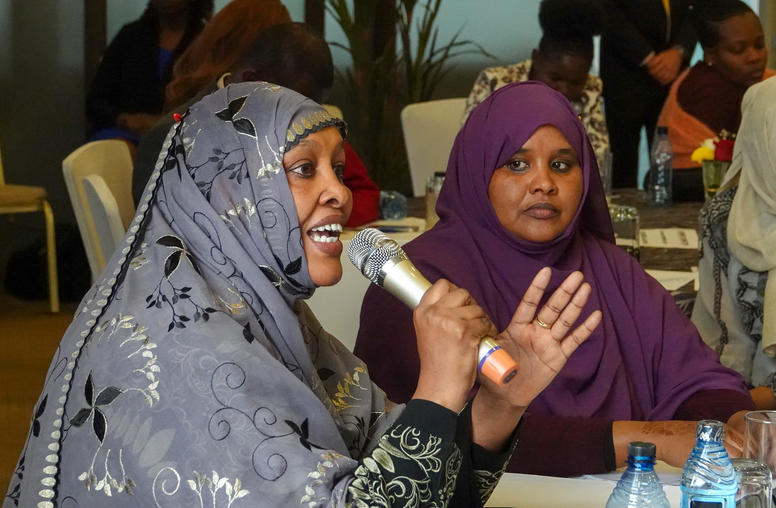
Sisters Without Borders Launch
On June 26, 2019, the Sisters Without Borders network of Kenyan women civil society leaders was publicly launched, marking a milestone as the network expands its membership to include regional neighbors in Ethiopia, Tanzania, and Uganda.
Featured Publications
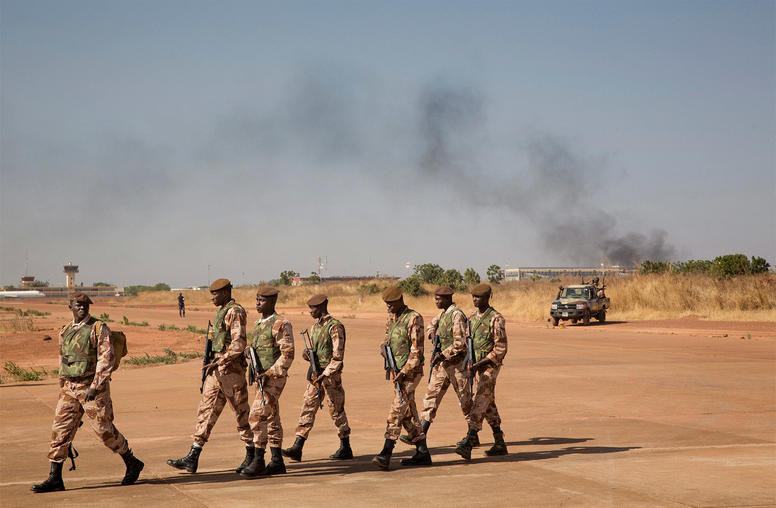
Five Things to Know About Mali’s Coup
The current crisis shows the importance of investing in rule of law and governance in times of peace, and during conflict.
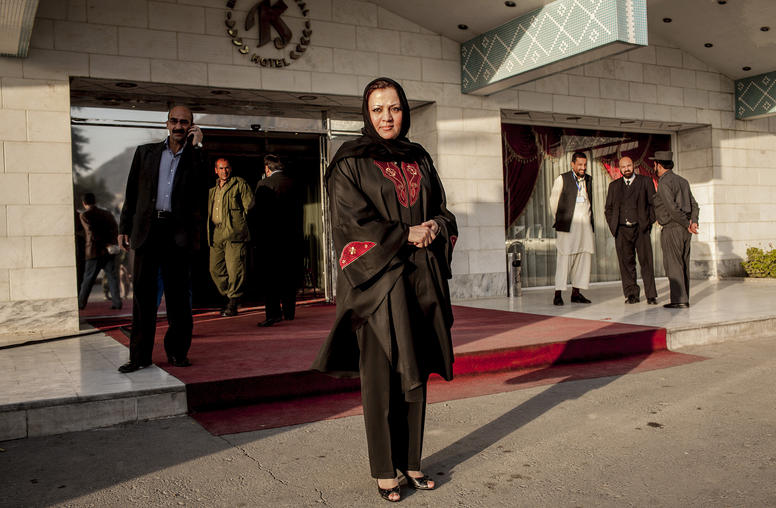
What Women Have Won
On International Women’s Day, reflecting on the long road ahead to equality—and how far we’ve come.
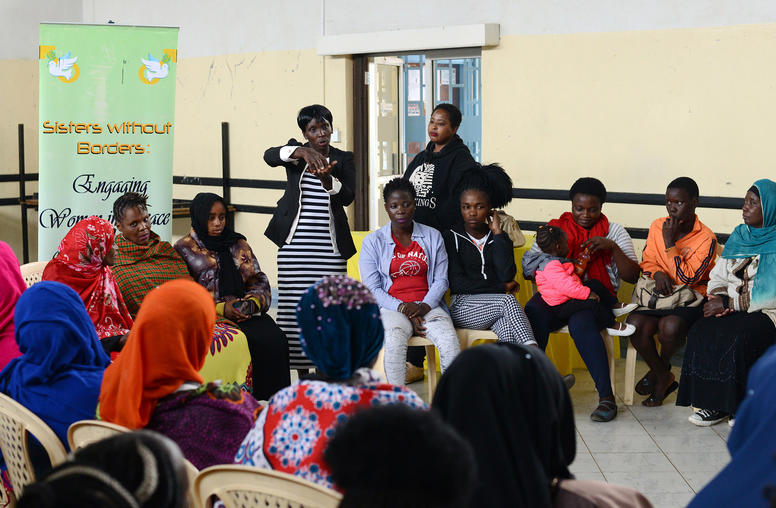
How Kenya’s Women Are Preventing Extremism and Violence
International Women’s Day demands change. ‘Sisters Without Borders’ shows how to achieve it.

